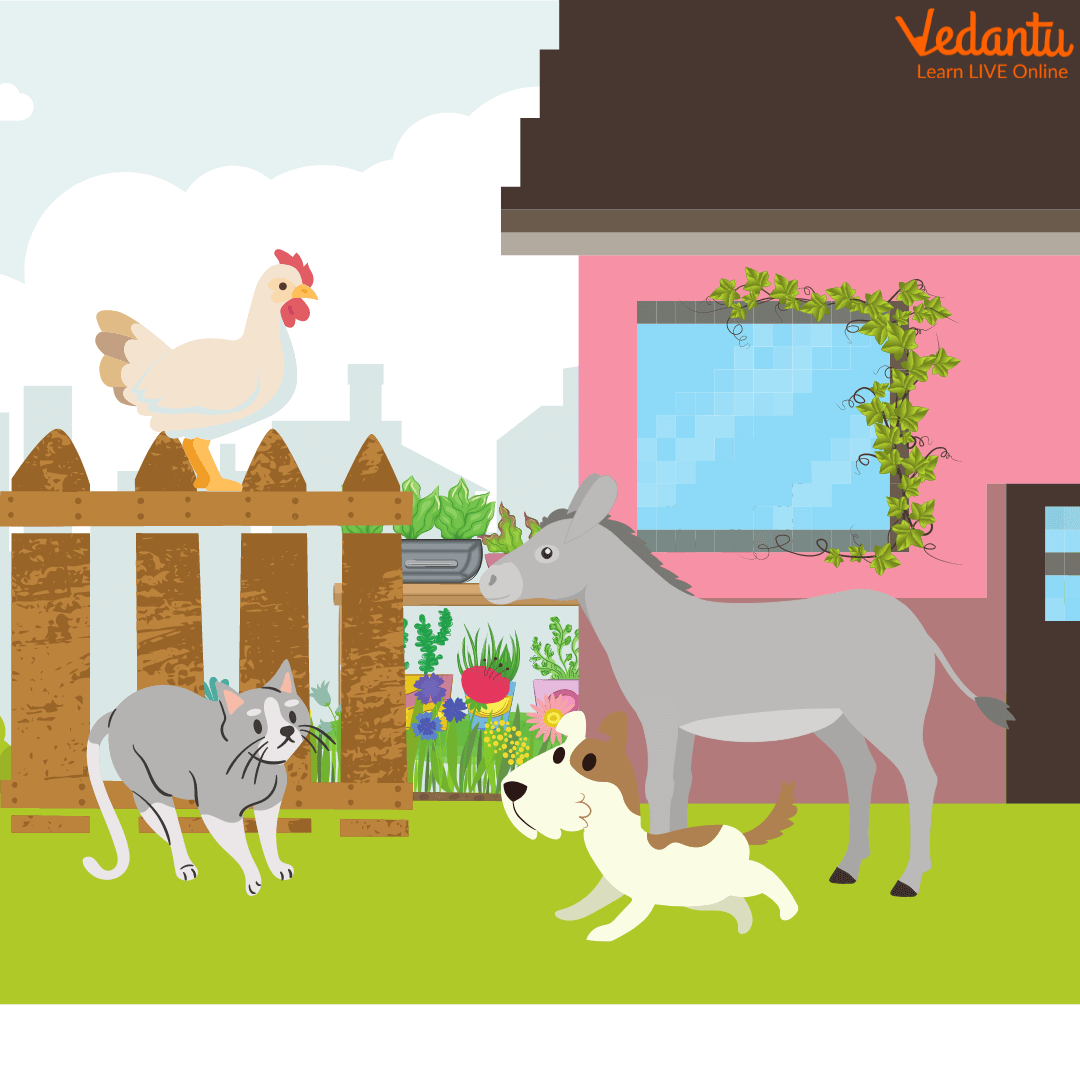The Town Musicians of Bremen

Fairytale of Four Animals
A meeting of four animals who think their lives are over is described in the story "Town Musicians of Bremen." They decided to go their own way since the owner wanted to get rid of them. All four of them decided to go to Bremen.
On the way, they got hungry and thirsty because of the long journey. Then, they came across an old wooden house where they could relax. Their singing story began right there.
In this article let's talk about the fairytale "Town Musicians of Bremen." Let's find out if they made it to Bremen.
The Musicians of Bremen Story
An old and tired donkey once escaped from his owner after hearing he was about to be sold to a butcher. The poor animal was forced to carry bags around a mill, and it was no surprise that he was tired and out of strength. He became weaker as the owner fed him less and less food. Finally, the owner decided that it was best to get rid of him.
The donkey was angry at his owner's decision, but he refused to give up. Before he ended up in the butcher shop, he decided to abandon him. He came upon a sad hunting dog whose owner had ordered him to watch the house while he was out. He breathed loudly, as if he didn't have much strength. His master wanted to kill him. In order to prevent this, he too decided to escape from there.
The two depressed animals started heading towards Bremen. They were fortunate to have met because they could look after each other. They wanted to get some food, so they decided to become musicians. On their way, they came across an old cat and a rooster, and they decided to join them. The cat's owner wanted to get rid of him because he couldn't catch mice anymore, and the rooster's owner wanted to eat him for lunch.

A Meeting of Four Animals
They walked and walked until the sunset. They could not reach Bremen, but they were able to find a hut where they thought to spend the night.
They saw robbers making a delicious dinner when they peeked out the window. They got a clever idea. They decided to earn their meals by performing under their window. The dog jumped on top of a donkey, the cat jumped on top of the cat, and the rooster jumped on top of the cat. They sounded like they were screaming as they started singing. The burglars were afraid and ran because they thought a wild animal was about to attack them.

Four Animals Performing Under the Window
When the robbers left, the animals were finally able to eat. After a long journey, they were able to enjoy themselves. They went to bed after dinner to get some rest before their journey to Bremen. They prepared their beds and turned off the light. The donkey slept in the hay, the dog was next to the door, the cat was by the fireplace, and the rooster was sitting on a high wooden beam.
One of the robbers returned to the hut to investigate if the animal was real. The cat scratched him as soon as he walked in. The donkey then kicked him in the head with his foot, the dog bit him, and the rooster screamed loudly. So, the robbers never came back to the shack.
They were able to catch their breath after defeating the robber. They were really proud of themselves for being there for each other when they needed it. They weren't ready to live under someone else's control again, which is why they got rid of the robbers. They didn't even consider returning to the shack because they thought they could be seriously hurt.
The animals stayed in the hut until it was time for them to die. They had a fantastic time with good food and good friends.
Moral of The Story
This story has a lot of morals that can be learned from it. One of the clear morals in this tale is to respect your elders. This story shows that, although grandparents may not be as strong as they previously were, they are still valuable. Every generation must learn this lesson, and this tale acts as a gentle but important reminder.
One more important moral in this tale is the value of teamwork. The animals in this story are old and weak, and none of them could do anything on their own. But, by working together, they are able to accomplish something that none of them could do alone.
This story is sometimes considered as nothing more than a simple and enjoyable one. However, it is still well written and gives an opportunity to teach kids things that are often hard to teach. Understanding the problems of "The Bremen Town Musicians," especially those of age, death, and change, is the key to understanding what this story conveys.
Conclusion
This story shows the animals in a positive way. It's wonderful how old animals can stand strong. Even though these animals are too old to work, their toughness and cooperation make them very attractive. The four animals are only kind and considerate of one another, and their ability to work together may be seen as a gentle affirmation of strength.


FAQs on The Town Musicians of Bremen
1. What does the story tell about the lives of farm animals?
The tale provides a disturbing insight into the lives of farm animals for modern readers. These four have faithfully served their masters and do not deserve to be killed simply because they are old and tired. Farmers, on the other hand, cannot afford to be sentimental. Livestock that is unable to work is simply another mouth to feed.
2. Why did the robbers run away from the house?
The sight and sound of the four animals creating a form and "making their music" are meant to be entertaining. The terrified robbers, on the other hand, fled, revealing themselves as cowards. When the robber captain sends one of his men to check the house rather than fearlessly doing it himself, he demonstrates a similar fearfulness.




